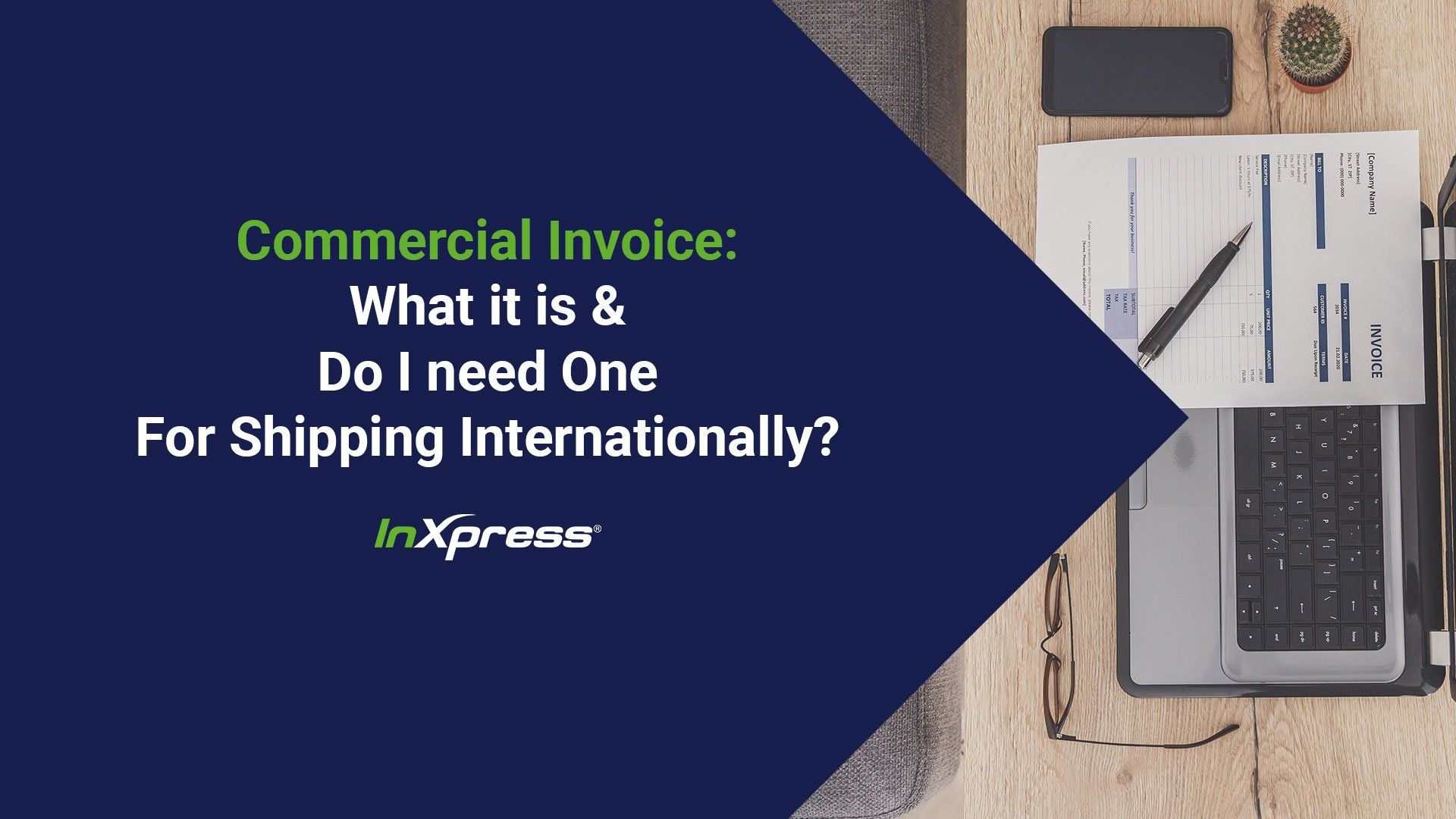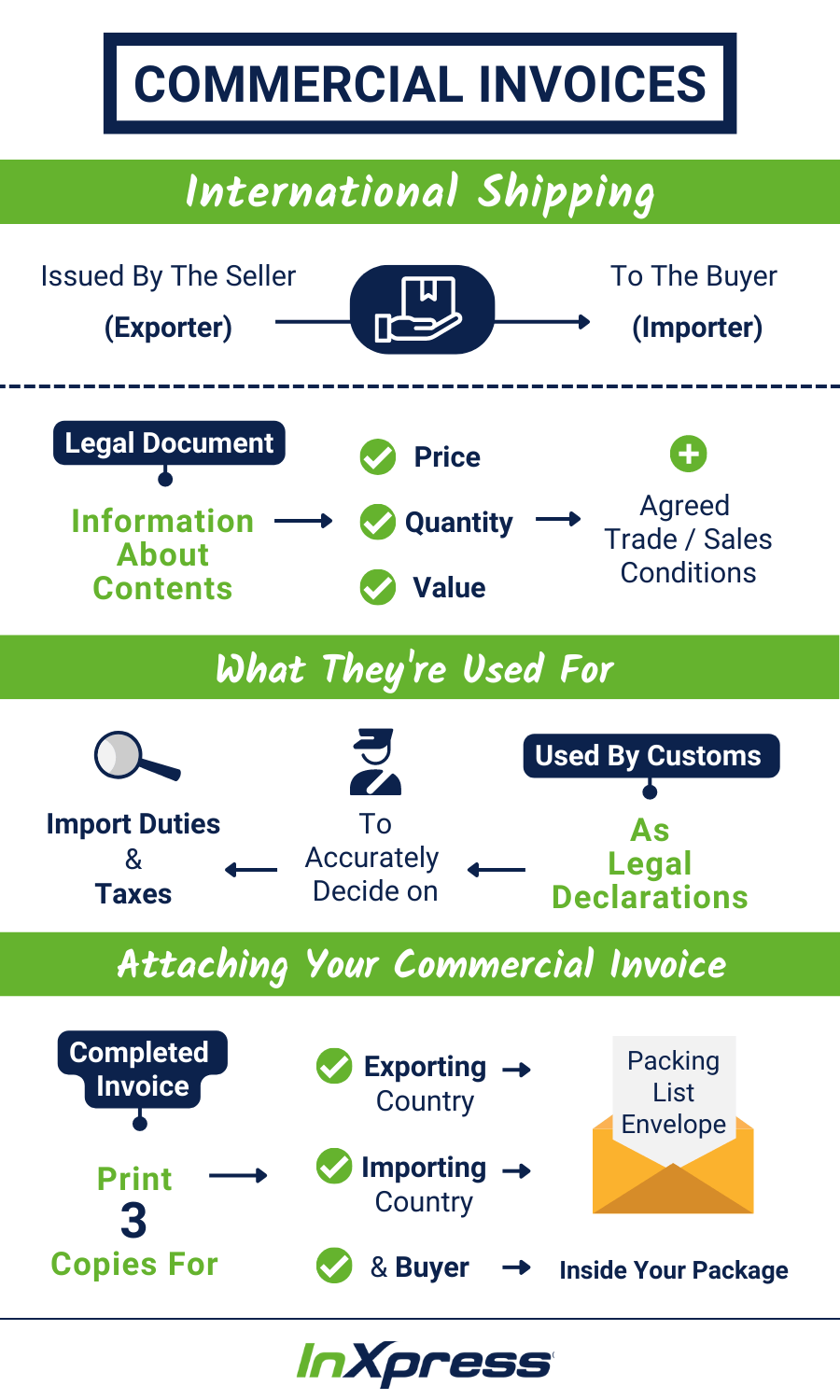Commercial Invoice: What it is & Do I need One For Shipping Internationally?

When it comes to shipping goods to international recipients, there are standard document requirements used for exporting, with one of the most important ones being the commercial invoice.
Commercial invoices are a vital part of any international shipment and in order to get your packages to their recipient without any hassles, you will need to understand how to issue these correctly.
In the below article, we will explain what a commercial invoice is, why you need to include this document in your international shipment and how to go about doing so.
What is a Commercial Invoice?
A commercial invoice is a legal document that contains information about the contents of a package (price, value and quantity) as well as the trade or sales conditions (Incoterms) agreed on by both the buyer and the seller (such as who pays the customs costs).
These binding documents are issued by the seller (exporter) to the buyer (importer) in an international transaction and serve as contracts and proof of sales between the buyer and seller.

Why do I Need to Complete A Commercial Invoice For My International Shipment?
It is a legal requirement to complete a commercial invoice accurately for international shipping. As they are also used for customs declaration purposes, any misinformation may lead to incorrect payments of duties and taxes as well as legal ramifications which could end up in a fine being levied.
If accurately completed, this document will assist customs authorities in deciding which taxes and import duties apply to the consignment.
Basically...If you fill this invoice in correctly, your package has a better chance of arriving on time and not getting held up at customs which could lead to long delays and additional costs.
What Does a Commercial Invoice Include?
While there isn’t a standard format needed to create a commercial invoice, in order to be considered legally binding this document should include several important details.
Whether you decide to use a premade template or to create your own commercial invoice from scratch, make sure to include the following details:
- Header with Buyer and Seller Information
- Including both the seller and recipients contact details, detailed addresses and tax numbers.
- Invoice Number & Invoice Date
- Every invoice is tracked by a unique invoice number (invoice ID), in order to avoid duplicate payments and to keep documents well-organized.
- Product and Shipping Details
- Item code (SKU number)
- Product name and a brief description
- Quantity
- Net weight (the weight of the product without the added weight of the packaging)
- Gross weight (both the weight of the product and its packaging)
- Unit price. (Usually referred to as its Value).
- Total price for every line of product.
- Subtotal. (Once you’ve summed up the totals for every item, add them all up).
- Harmonized System Code
- This HS code categorizes contents based on their type, purpose, and nature. This way, custom authorities can quickly decide what taxes, tariffs, and other additional duties apply to every product line.
- Country of Origin
- The country your goods were produced in. (There are cases where a Certificate of Origin is also needed).
- Payment Terms & Terms of Sale
- The terms of sale (or Incoterms) are internationally recognized rules that facilitate trade.
How to Attach Your Commercial Document:
You will need to print out three copies of your completed commercial invoice.
- One for the current country that you’re exporting from.
- One for the country the package is being imported to (For their customs).
- And the last one is for the buyer.
Put two of these printed invoices in a packing list envelope (for protection and safety) and then, put the last one inside your package (for the buyer to see).
Other Important Documents Needed For International Shipping:
In addition to the commercial invoice, most international shipments also require a customs declaration, a dispatch note, and possibly a Certificate of Origin (CO).
For more information on completing your commercial invoice, please
contact us. Our team of shipping specialist at InXpress Sandton would love to assist you in making sure that your international shipment process runs as smoothly and efficiently as possible.











